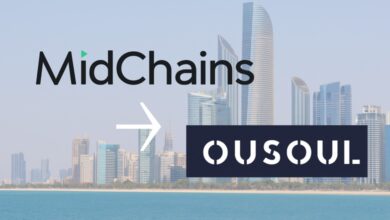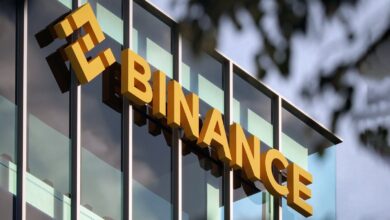Al Maktoum believes blockchain integral part of Future Smart Cities

Sheikh Hamdan Bin Rashid Mohammad Al Maktoum, Crown Prince of Dubai at the World Government Summit shared his vision for smart and sustainable cities and discussed seven shifts that will shape their future. In his speech he stated, “Our goal is to put Dubai 10 years ahead of world cities.”
He discussed a shift in the design and nature of cities from traditional models built to cater to transport and industrial needs, to cities that are designed to achieve a better standard of life to meet 80 per cent of people’s needs in under 20 minutes. Shaikh Hamdan also spoke about the change in mobility in future cities, pointing out that easy access has a direct impact on happiness levels.
He added, “In the cities of the future, we will focus on creating new routes, including air and land, such as Hyperloop and others … If we turn five per cent of the transportation into self-driving means, the congestion will decrease by 40 per cent.”
Looking at the future use of energy in cities, Shaikh Hamdan said according to reports by the International Energy Organisation, energy from solar panels will be 16 times higher by 2040. “In the cities of the future, our homes will be transformed into environmentally friendly homes and each person will become consumers and producers at the same time, and every house will be able to store the energy it needs for the next 24 hours,” he said.
While there will be a reduction in the cost of the production of clean energy, the role of energy and power authorities will also change from being a centralised system to a decentralised system, as each home independently generates the energy it needs.
“By 2050, the world’s population will double, so be aware of the issue of food security,” warned Shaikh Hamdan. He explained that while people continue to shift from rural areas to urban cities, there will be an increase in the need for food production by 70 per cent in developed countries and 100 per cent in developing countries by 2050. “Future cities will play a key role in supporting farmers and facing the challenge of global food security … The cities of the future will be the food basket for individuals thanks to the flourishing of food production techniques, which will increase the level of competitiveness among cities,” he added.
The introduction of horizontal farms will be an important solution to the future food security crisis as they will ensure that most of the populations needs are produced inside the cities.
Shaikh Hamdan also addressed the future revolution in the production of data, which populations will rely on for all aspects of life. “Cities will become more connected, secure, productive and intelligent, there will be a decrease in crime rates thanks to AI … and the number of internet of all things devices will grow to 500 billion by 2050,” he added. Predicting competition between cities in developing smart services, automated forms of transportation and leveraging AI and data to maintain security, Shaikh Hamadan pointed out that “the competition between cities of the future will not just be about infrastructure, but also about attracting the right talents and minds.”
Future cities will see three new economies, data economy, sharing economy and circular economy, which will change methods of consumption and services, replacing the traditional oil economy in the region. “The EU data economy is currently worth $350 billion, which equals to 60 per cent of the production of oil by Opec countries,” said Shaikh Hamdan.
The need for agile leadership and innovative ways of government was listed by Shaikh Hamadan as the seventh shift to be seen in cities of the future. “Innovation platforms will provide solutions to the challenges as city leadership is linked to its boldness and innovation for unconventional solutions,” said Shaikh Hamdan.
In the cities of the future, energy providers will become a platform to exchange ideas and information through blockchain, while the individual and the private sector will be able to collaborate in designing their requirements through innovation platforms, explained Shaikh Hamadan.
He pointed out the competitiveness of cities is not limited to the quality of the business environment and infrastructure, but also to the polarisation of minds and talents and the establishment of values of tolerance, cooperation and prosperity. “We are all partners in building future cities, it is not only the job of governments. Every seed we will grow now will become a tree in the future,’ said Shaikh Hamdan.
“We must remember, the future is not technology or AI, the future is the human being, and the future is us plus what we add to the knowledge and experience we have and what we add to our hearts of tolerance and compassion,” he added.





